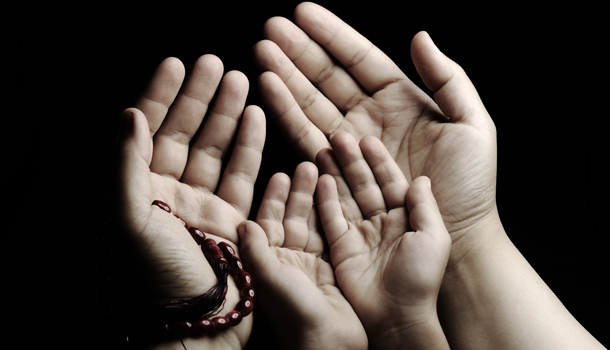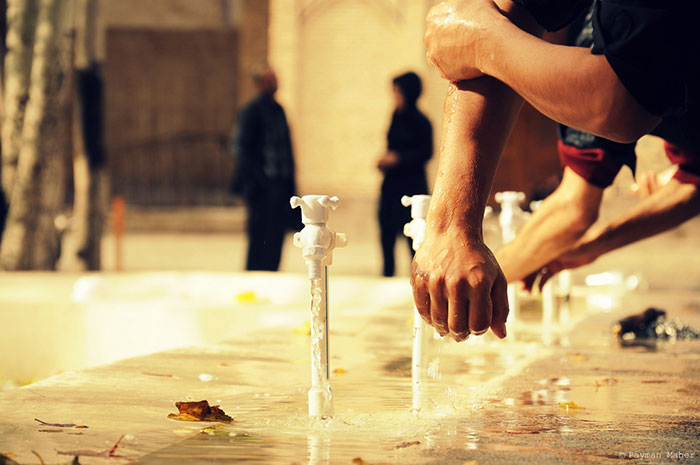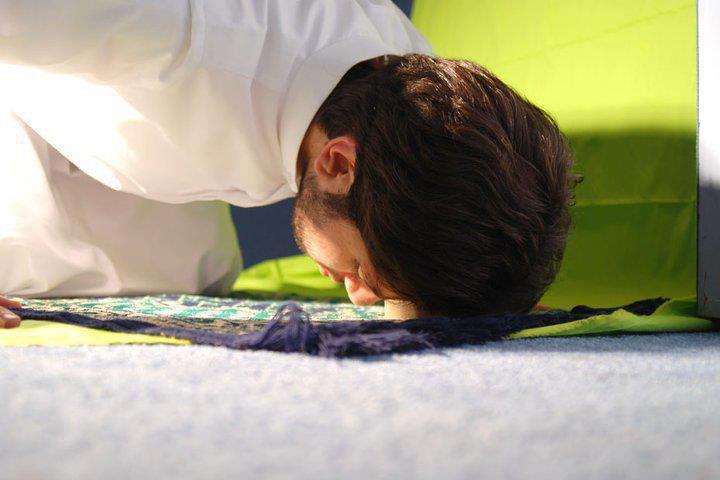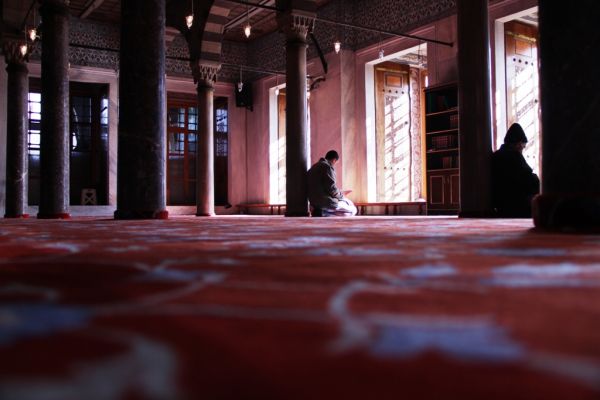 One of the things that are so much recommended in Islam is the matter of Doa or asking from Allah.
One of the things that are so much recommended in Islam is the matter of Doa or asking from Allah.
In the dictionaries, the word of “Doa” has been defined as calling or asking.
There are different motives for Doa, like gaining a benefit or being away from a harm in the material or spiritual matters or cursing or asking for forgiveness etc.
When the human knows that he/she is in a very deep and complete need of his/her Lord the All-Mighty Allah, and Allah is needless of everyone or everything and He is the most powerful and the most knowledgeable and the wisest and the most merciful one, and there is a constant and inherent need to such a being, it makes the human to ask from Allah because Allah is in charge of everything.
Asking from Allah is in the innate nature of human, the holy Quran has mentioned it in chapter Isra verse 67:
وَإِذَا مَسَّكُمُ الْضُّرُّ فِي الْبَحْرِ ضَلَّ مَن تَدْعُونَ إِلاَّ إِيَّاهُ فَلَمَّا نَجَّاكُمْ إِلَى الْبَرِّ أَعْرَضْتُمْ وَكَانَ الإِنْسَانُ كَفُورًا
“And when misfortune befalls you at sea, all except He of those to whom you supplicate forsake you; yet when He delivers you safely to the land, you turn away. The human is unthankful”.
we can understand from this verse that at the time of emergency and the time of getting disappointed from everything other than Allah, the human refuges to Allah, but at the other times, many humans forget their Lord and refuge to everyone other than Him.
Doa or asking from Allah, teaches us to remember that there is a lord that He is the only one who can really do everything even though the other people does not want that thing to happen, and this is called in the theology “التوحید الافعالی” witch mean there is only one being who is independent in His actions and He needs nothing and no one for doing an action, of course this does not mean that we believe in predestination (which means that we are obliged to do anything which Allah wants and we have no will), but this means if Allah wants something to do, no one can overcome His will.
The other philosophy of Doa is that this action is a cause for Zikr or remembrance of Allah and Zikr is the means that gives us tranquility, Allah said in the holy Quran chapter Raad verse 28:
أَلاَ بِذِكْرِ اللّهِ تَطْمَئِنُّ الْقُلُوبُ
“Verily in the remembrance of Allah do hearts find rest.”
Another philosophy of Doa is that it is a way to talk to our beloved Lord, it is very obvious that the one who has fallen in love with someone, always wants to be with his/her beloved and wants to talk to him/her and he/she enjoys this talking so much.
We can ask Allah through Doa to fulfill for us the material wishes or to give us the hereafter bounties and help us to be on the straight path, the path that He is satisfied with us.
Another benefit of Doa is to remove the coming problems from us.
The other philosophy of Doa is that through it, we ask Allah to pay attention to us. Allah said in the holy Quran chapter Forghan verse 77:
قُلْ مَا يَعْبَأُ بِكُمْ رَبِّي لَوْلَا دُعَاؤُكُمْ
“Say: my lord would not concern Himself with you but for your prayer”.
it is good to mention that some people think that if we ask Allah for solving our problems, it means that it is against the system of cause and effect, the system that is prevalent in this world, but we say as the answer to that: let’s imagine an illness, it can be cured through two ways, the first, through using the medical treatments and the second, sometimes through asking from Allah to heal that, so it is not against that scientific system of the world i.e. cause and effect, because the cause can be several.
Imam Sadiq peace be upon him said:
“I advise you to do Doa, because you don’t get near (to Allah) through anything like Doa.”
Let me mention very important topic, and that is the common question, is there any condition for Doa to be fulfilled or let’s say in this way: why some of our Doas are not fulfilled?
For answering this question we must notice that sometimes some of our wishes are not suitable for us to be fulfilled, and because Allah is so much wise and merciful, He does not fulfill that, imagine when a child is ill and eating the cake is harmful for him/her, it might happen that this child asks the parents to give him/her that the cake and he/she may cry and insist on that, but the parents do not give him/her that, in your idea, is this reaction of the parents, a good reaction or not? Can anyone blame the parents because of that and call them stingy or unmerciful?
The same example is applied to our discussion, sometime it is not appropriate for us to have something and for this reason Allah does not fulfill our Doa. But we because of our incomplete and limited knowledge insist on it.
The next answer can be this: how much do we listen to the commands of Allah? I mean how much we obey Allah, that now we except Allah to fulfill our Doa as soon as we ask Him?
But we must not get disappointed from asking Allah, because Imam Ali peace be upon him narrated a Narration from the Prophet of Islam that he said:
“No believer asks Allah except it will be fulfilled, and that happens in different ways, either it is fulfilled in this world or in the hereafter (through changing to the bounties or elevating the position of that person etc.) or it is a cause for forgiving the sins of that person.”
————————–
Source:
Tebyan.net







